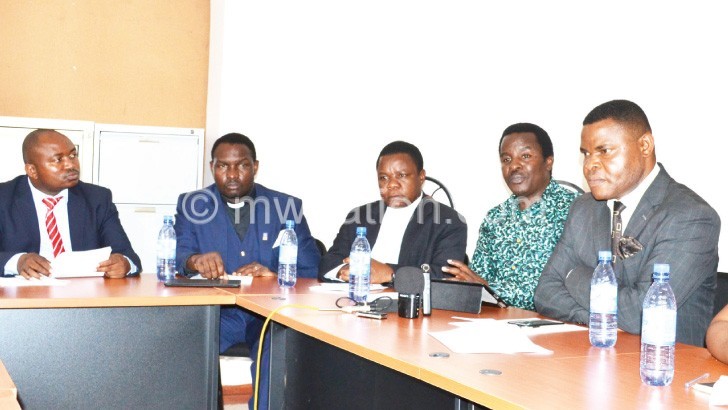Malawi seeks support for climate resilience
Malawi, currently ranked as third most vulnerable to climate risks, has asked for financial support for adaptation, transfer of appropriate technology, and capacity building.
The support would enable the country implement interventions that would enhance resilience of productive sectors and ecosystems negatively affected by extreme climatic events.
Chief director in the Ministry of Natural Resources, Energy and Mining, Yanira Ntupanyama said this yesterday when delivering the Malawi National Statement at the high-level segment of the 22nd Conference of the Parties (COP) in Marrakesh, Morocco.

She said: “Malawi would like to concur and associate itself with the statements made by the chairs of the group of 77 and China, least developed countries as well as the African Group.
“Our leaders of these groups have made it clear, as is Malawi, that the world is justifiably waiting for our decisions with a degree of impatience on the modalities, procedures and guidelines for effective implementation of all elements in the Paris Agreement, which we adopted in Paris in December 2015.”
She said Malawi is a country bearing the burden of the adverse impact of climate change although it has not contributed to the cause of the challenge.
“The horrific impacts of climate change are continuously and adversely affecting the poorest and most vulnerable. People are dying. People are displaced. Livelihoods are threatened and disrupted,” she added.
“Generation and provision of energy is disrupted. Agricultural production is hampered. There is resurgence of human and agricultural pests and diseases affecting our country and other parts of the world as well.”
Malawi experienced severe drought forcing President Peter Mutharika to declared a state of disaster over the country on April 12 2016.
In 2015, Malawi experienced unprecedented devastating floods in living memory, affecting 1.1 million people, displacing 230 000 of them and killing 106 others.
As a result of this year’s drought, an estimated 6.7 million people, over a third of the country’s population, is in critical need of food aid.
“These effects are negatively impacting on Malawi’s economic growth. The direct cost of droughts and floods is about 1.7 percent of Malawi’s GDP [gross development product] every year,” added Ntupanyama.
“In 2015, the GDP growth was revised downwards from a projected 5.1 percent to 3.1 percent on account of floods. Therefore, the COP 22 requires us to adopt decisions that will rescue Malawi’s vulnerable populations and to enhance ecosystem services for them to sustain their livelihoods.”n





